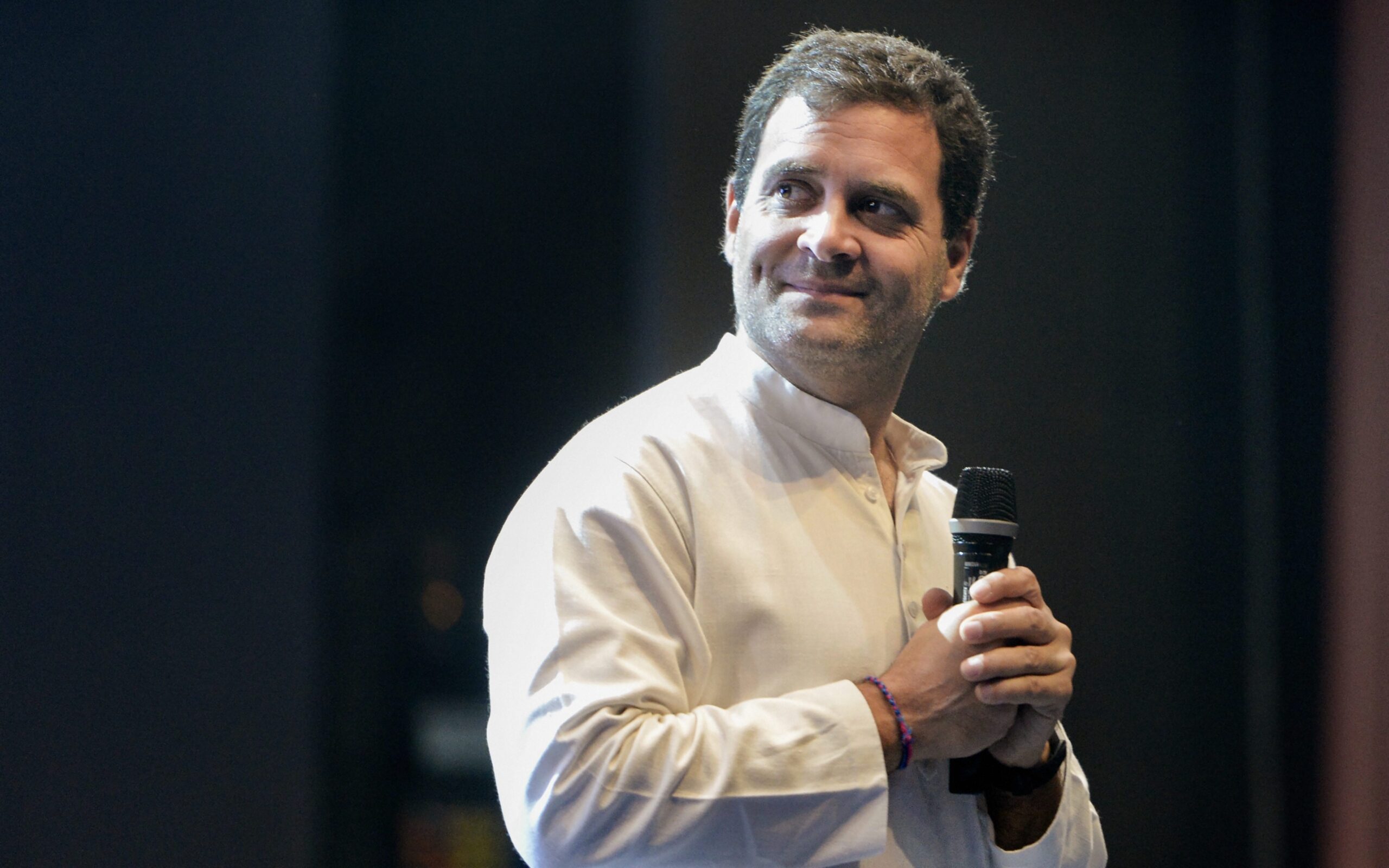Rahul Gandhi: Hero or Villain of Indian Politics? Read to Decide!
Early Life and Education:
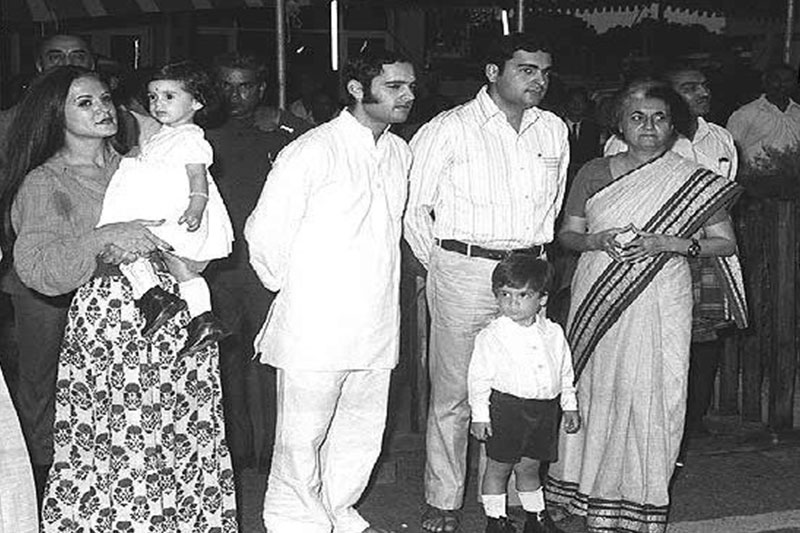
Rahul Gandhi was born in New Delhi, India, on June 19, 1970. His parents are Rajiv Gandhi and Sonia Gandhi. Indian Prime Ministers Indira Gandhi and Jawaharlal Nehru were both his grandmother and great-grandfather. This meant that he had a strong connection to Indian politics. from the time he was born. He studied at the Doon School and Harvard University. When his grandmother was assassinated in 1984, his family moved to the UK for safety. There, he continued his schooling under a different name.
After getting his M.Phil. in Development Studies from the University of Cambridge, he worked at a management consulting company in London for some time before coming back to India. When he got back, he was naturally interested in politics as his family has a long history in this field.
Getting into politics:
Initial Steps and Challenges:
Rahul Gandhi officially got involved in politics when he ran for office in Amethi, Uttar Pradesh, in the 2004 Lok Sabha elections. His election campaign centered around new leadership, development, and youth empowerment. He easily won the seat, and many people saw his entry as a fresh start for the Congress party, which required new energy as its popularity was decreasing.

However, he had to deal with several issues. People criticized his public speaking skills and political knowledge. Some people said that his privileged upbringing didn’t give him enough experience to understand the complications of Indian politics. Still, he kept building his political image by learning and refining his approach over time.
Rise in Congress Party:
Rahul Gandhi steadily rose in the Congress party. As the General Secretary of the All India Congress Committee (AICC) in 2007, he was overseeing the Indian Youth Congress (IYC) and the National Students Union of India (NSUI). He tried democratizing these groups more, encouraging young leaders, and growing their membership. Even though these attempts were good, they didn’t add to the Congress party’s overall success.
Rahul was made Vice-President of the Congress party in 2013. He started talking about national issues, like economic policies and social justice. More people, especially young people, started to connect with him when he talked about the need for transparency, accountability, and growth for everyone.
Role in Lok Sabha Elections
2004 Lok Sabha Elections
In 2004, Rahul Gandhi participated in the Lok Sabha elections. He contested from Amethi and won by a large margin. This was the start of his official career in politics. The United Progressive Alliance (UPA), a coalition government, led by his mother Sonia Gandhi, was formed by the Congress party. This was the start of a ten-year rule. Initial success for Rahul was seen as a good sign for the party, which was having a hard time staying relevant as the Bharatiya Janata Party (BJP) gained popularity.
2009 Lok Sabha Elections
The Lok Sabha elections of 2009 were very important for Rahul Gandhi and the Congress party. The party wanted to obtain another mandate and build on the success of UPA-I. Rahul played an important role in the campaign because he worked hard to get young people to vote and addressed major issues like employment and rural development. His efforts were one of the primary reasons why the Congress party won big, getting 206 seats and creating the UPA-II.

Despite this success, Rahul’s leadership was criticized. His efforts for reforming the Youth Congress were seen as lacking in depth, and these organizational changes did not lead to electoral wins in key states. His ability to connect with young voters and campaign for inclusive growth was recognized and admired by many people inside and outside the party.
2014 Elections for the Lok Sabha
The Lok Sabha elections of 2014 were a huge setback for Rahul Gandhi and the Congress party. Competing against the resurgent BJP under Narendra Modi‘s charismatic leadership, the Congress lost a lot of seats. They only got 44 seats, which was their worst electoral performance ever. Modi’s campaign for development and good governance overshadowed Rahul’s campaign, which was about corruption, inclusion, and secularism.
Rahul retained his seat in Amethi, but this election was seen as a personal defeat. Critics said he wasn’t a strong leader and that he wasn’t able to stop the Modi wave. The mess in 2014 made the Congress party think a lot about itself and led to calls for reorganizing the party. A lot of people were very critical of Rahul’s leadership, and many questioned his ability to get the party out of its crisis.
2019 Elections for the Lok Sabha
The 2019 Lok Sabha elections were another critical test for Rahul Gandhi. He led the campaign against the BJP while he was President of the Congress party. The Congress party ran an aggressive campaign to deal with economic and social issues, but they were not able to effectively challenge the BJP’s dominance. The Congress was able to get 52 more seats, but the BJP won by a huge margin with 303 votes.
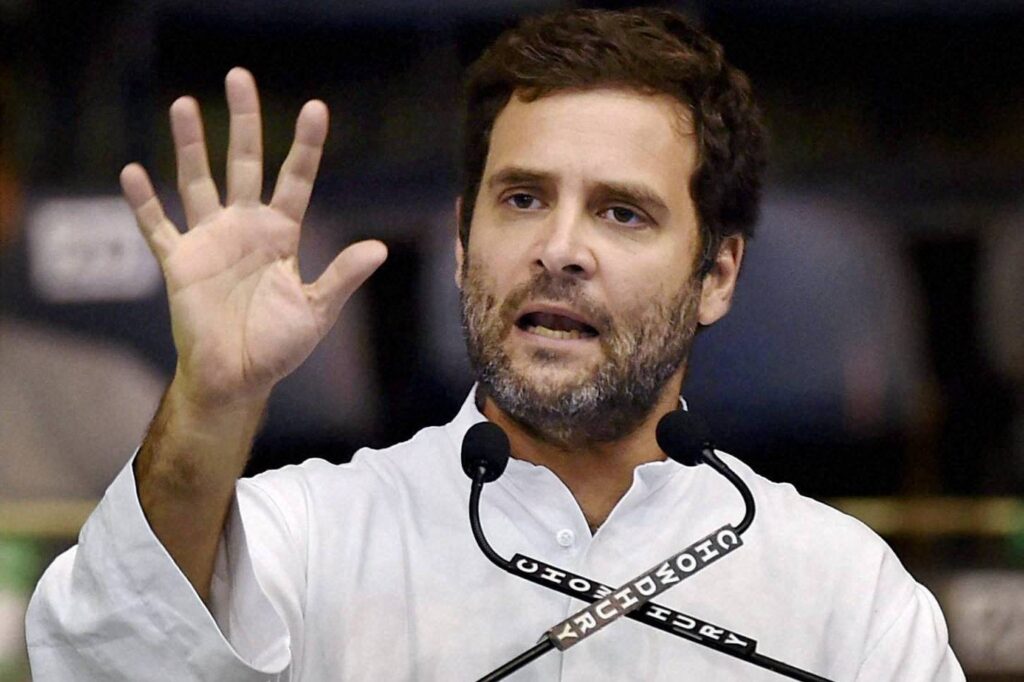
One interesting thing about the 2019 elections was that Rahul chose to run from Wayanad in Kerala as well as Amethi. His loss to Smriti Irani of the BJP in Amethi was a huge blow, but he won easily in Wayanad. After the election, Rahul quit as President of the Congress Party, saying that he was responsible for the party’s poor performance. This period marked a turning point in his political career, as he sought to reflect on the party’s direction and his role within it.
Post-2019: Rebuilding and Resilience
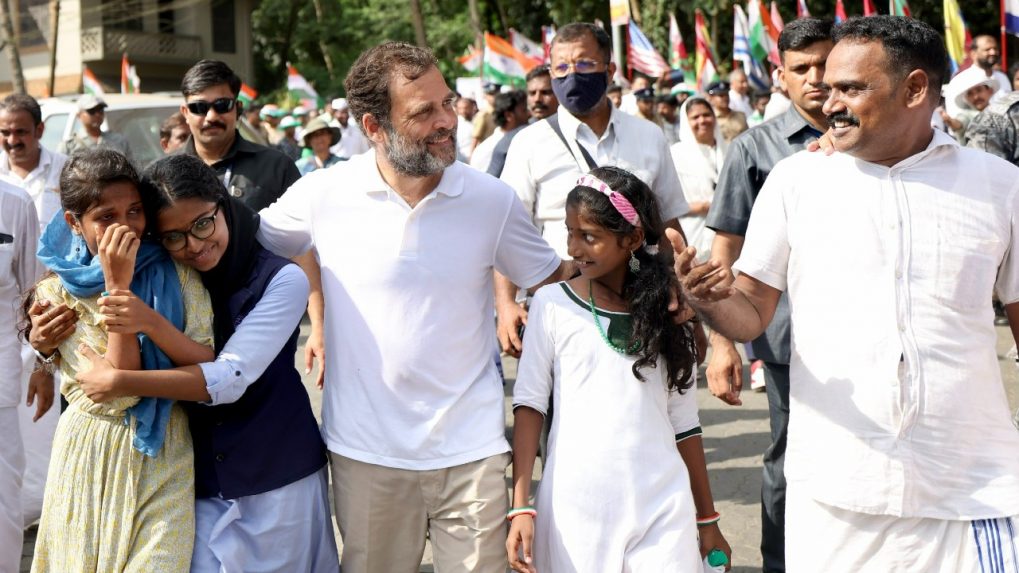
Rahul Gandhi remained a powerful figure in the Congress Party even after he stepped down as President. He started focusing on grassroots mobilization, solving problems like farmers’ distress, unemployment, and social justice. He often used social media to articulate his views and criticize government policies. He did this to reconnect with voters and rebuild the party’s base.
Advocacy and Public Engagement:
More public engagement and advocacy on key issues were the focal points of Rahul Gandhi’s political strategy after 2019. Economic issues, the COVID-19 pandemic, the weakening of political institutions, rising unemployment, inflation, and agricultural issues were problems affecting the general public.
Internal Reforms and Organizational Challenges:

Rahul Gandhi has had a hard time rebuilding the Congress. Within the party, he campaigned for internal democracy, more transparency, and accountability. Efforts to give young leaders more power, build grassroots connections, and address internal factionalism have been important steps in this process. But it’s been hard to get things done because the party had a rich but tumultuous past, and there was internal dissent and divisions within the party.
Building Coalitions and Planning for the Election:
To challenge the BJP’s power, Rahul Gandhi knew how important it is to build coalitions. He tried to make alliances with regional parties, so they could work together against the ruling party. This approach brought mixed results. Some collaborations worked well, while others did not. His ability to work with these political groups and present a coherent alternative to the BJP remains crucial for the future of the Congress party.
Rahul Gandhi’s Vision and Ideology:
Rahul Gandhi’s political ideology is rooted in the Congress Party’s main principles, which are secularism, social justice, and inclusive development. He has always fought for the rights of underrepresented groups, fair economic conditions, and environmental protection. In his vision for India, he emphasizes the need for compassionate and progressive governance that meets the needs of all people.

Economic Policies:
Rahul Gandhi’s economic plans are based on inclusive growth and social welfare. He has spoken out against neoliberal economic changes, which he says exacerbate inequality and neglect the needs of the poor. Instead, he supports policies prioritizing job creation, rural development, and social security.
The Nyuntam Aay Yojana (NYAY) scheme was one of his flagship proposals. Its goal was to give India’s poorest families a minimum income guarantee. People didn’t think the plan would work, but it showed Rahul Gandhi’s seriousness about reducing poverty and economic inequality.
Social and Environmental Policies:
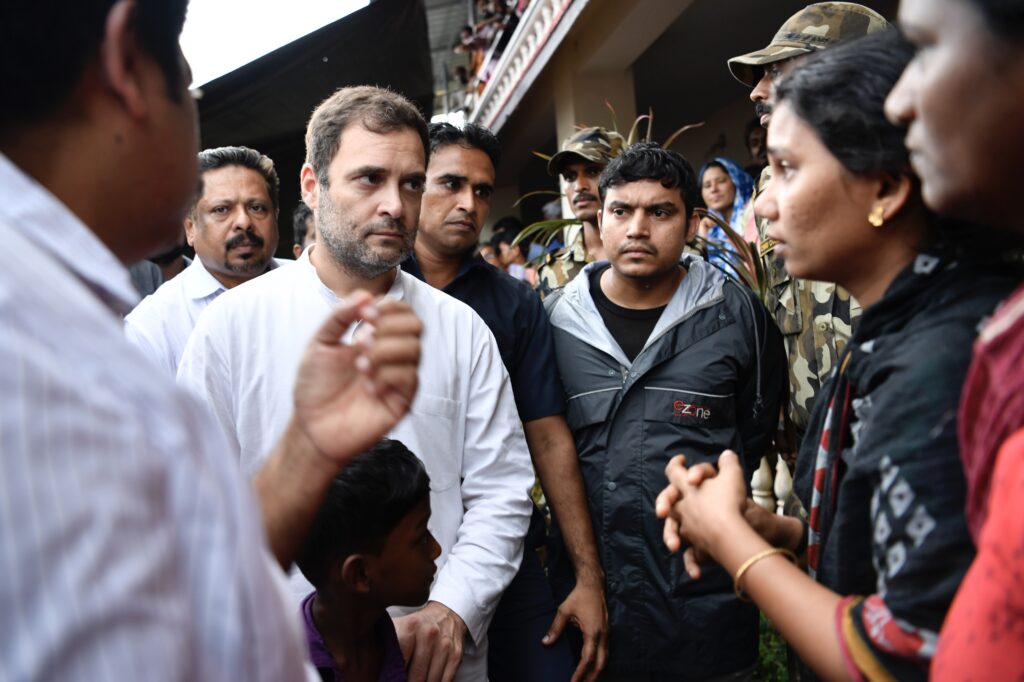
Rahul Gandhi has been an ardent advocate of social justice and environmental sustainability. He has always talked about issues like discrimination based on caste, gender inequality, and the rights of minorities. His stance on environmental problems reflected his concern for sustainable development, which meant emphasizing the need to find a balance between economic growth and ecological conservation.
Foreign Policy:
Rahul Gandhi supports a balanced and practical approach to foreign policy that protects India’s sovereignty while promoting global cooperation. He has talked a lot about how important it is for India to improve its relationships with its neighbors, form stronger strategic partnerships with the major global powers, and work for regional peace and security.
Challenges and Criticisms
Politically, Rahul Gandhi has had to deal with many challenges and criticisms. His leadership style, which has been termed as detached and inconsistent, has been a point of contention. Some people say that his privileged upbringing and lack of grassroots experience have made it hard for him to connect with regular voters. His political opponents have exploited his occasional mistakes and controversial statements to hurt his reputation.

Despite these problems, Rahul has been strong and has a willingness to evolve. His ability to learn from setbacks and adapt to changing political dynamics reflects a commitment to his role as a leader. His efforts to make the Congress party more democratic and support for progressive policies showcase his dedication to the party’s core beliefs.
The Path Forward:
The future trajectory of Rahul Gandhi’s political career in India is a subject of intense conjecture and discussion. Rahul’s influence will be pivotal in setting the course of the Congress party as it strives to restore its former position. The success of both him and the party in the future will depend on his capacity to engage with younger voters, tackle important socio-economic problems, and cultivate a cohesive stance against political opponents.
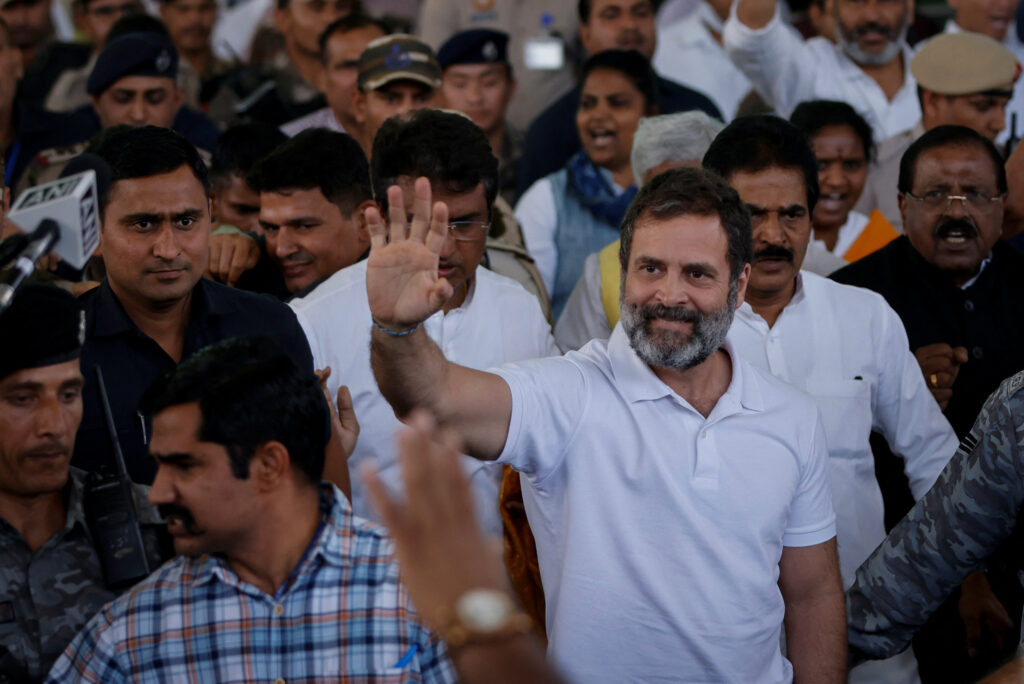
The forthcoming Lok Sabha elections in 2024 will serve as a litmus test for Rahul Gandhi and the Congress party. Given the BJP’s ongoing dominance in the Indian political scene, the Congress is confronted with the challenging task of regaining its status. Rahul Gandhi is expected to focus on the formation of alliances, issue-based campaigning, and utilizing regional factors to challenge the dominant position of the BJP.
Reforms and Revitalization:

For the Congress party to reclaim its former position, serious restructuring efforts are necessary. To inspire trust among party members and the electorate, Rahul Gandhi’s targets of internal democracy and transparency must be implemented efficiently. To successfully navigate this process, it will be crucial to empower new leaders, create grassroots connections, and address internal factionalism.
Legacy and Impact:
Rahul Gandhi’s legacy in Indian politics will be primarily shaped by his dedication to upholding the principles of democracy, secularism, and social justice, regardless of the results of elections. His journey, characterized by highs and lows, exemplifies the intricate dynamics of Indian politics and the difficulties of guiding a party with a profound yet tumultuous history.
Personal Life and Public Perception:
Public Image :
Throughout the years, Rahul Gandhi’s public persona has changed dramatically. At first, seen as a reluctant politician who came into the spotlight because of his family’s prominence, but with steady efforts, he has defined himself. His attempts to present himself as a leader who is connected with the masses and empathetic towards their problems are beginning to pay off.
Media and Public Scrutiny:
The public’s opinion of Rahul Gandhi has been greatly influenced by the media. Despite facing heavy scrutiny and criticism from multiple sources, he has also garnered support and recognition for his endeavors to address pressing national issues. Rahul’s media image has frequently wavered between being too critical and occasionally sympathetic, portraying the polarized nature of Indian politics.
Personal Interests and Hobbies:
Aside from his involvement in politics, Rahul Gandhi possesses a wide range of hobbies. He is well-known for his passion for sports, especially football and scuba diving. His love of adventure sports stems from his desire to learn about and experience various aspects of life, which he feels broadens his perspective as a leader.
Influence on Indian Politics:
Youth Involvement and Empowerment:
Rahul Gandhi’s emphasis on youth engagement and empowerment has been one of his most important political achievements in Indian politics. He has continuously stressed the significance of engaging youth in the political process and offering them opportunities to express their views and contribute to nation-building. His leadership of the Youth Congress and endeavors to democratize its framework are evidence of his dedication.

Promoting Social Justice:
Rahul Gandhi’s unwavering support for social justice has been a fundamental pillar of his political ideology. He has raised and addressed problems like caste discrimination, gender inequality, and minority rights, advocating for strategies that foster inclusivity and equality. Public policy and societal attitudes have been influenced by his attempts to address these challenges, as they have helped bring them to the forefront of national discourse.
Economic and Environmental Policies:
Rahul Gandhi’s focus on promoting economic growth that benefits all segments of society and ensuring environmental sustainability has had a significant impact on Indian politics. His suggestions for social welfare initiatives, such as NYAY, and his promotion of sustainable development approaches have added to the wider debate on achieving a balance between economic growth, social fairness, and environmental preservation.
Conclusion:

Rahul Gandhi’s political career is a complex and varied story of ambition, resilience, and transformation. Being a descendant of a renowned political heritage, he has skillfully navigated high anticipations and significant obstacles. His contributions to the Congress party, his advocacy for social justice and inclusive development, and his efforts to engage with the youth of the nation demonstrate his dedication to the principles of democracy and equality.
Rahul Gandhi’s ability to learn from his experiences and adapt to the evolving political landscape demonstrates his leadership capability, despite all the criticism and obstacles. As India progresses towards the 2024 Lok Sabha elections and beyond, his involvement will play a vital role in determining the future of the Congress party and the wider political scenario.
The story of Rahul Gandhi is not just about a politician; it is also about the spirit of democracy, the challenges of being a leader, and his never-ending search for a better future for India. His journey continues to motivate, challenge, and influence the Indian political situation, showing the aspirations of the world’s biggest democracy.

